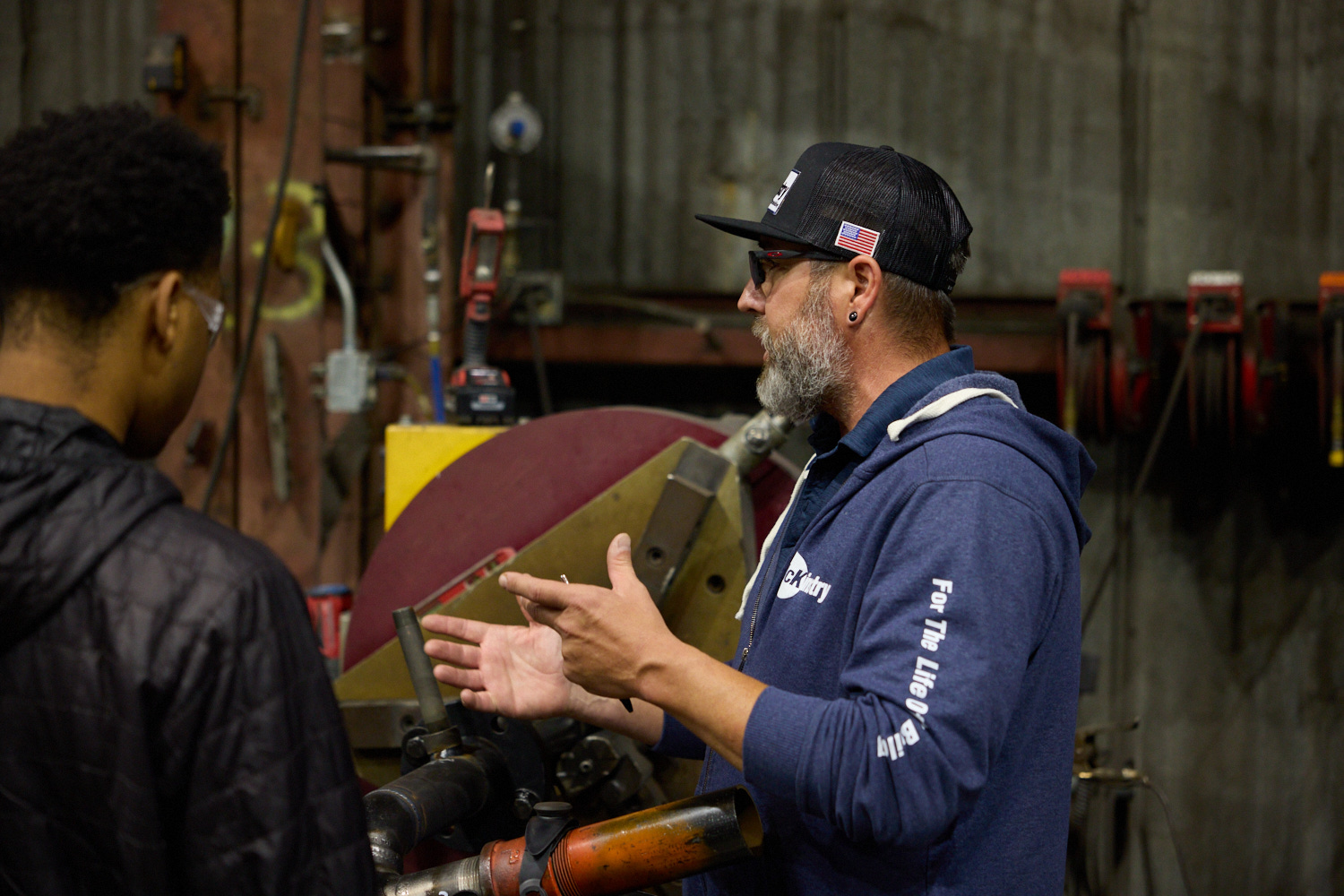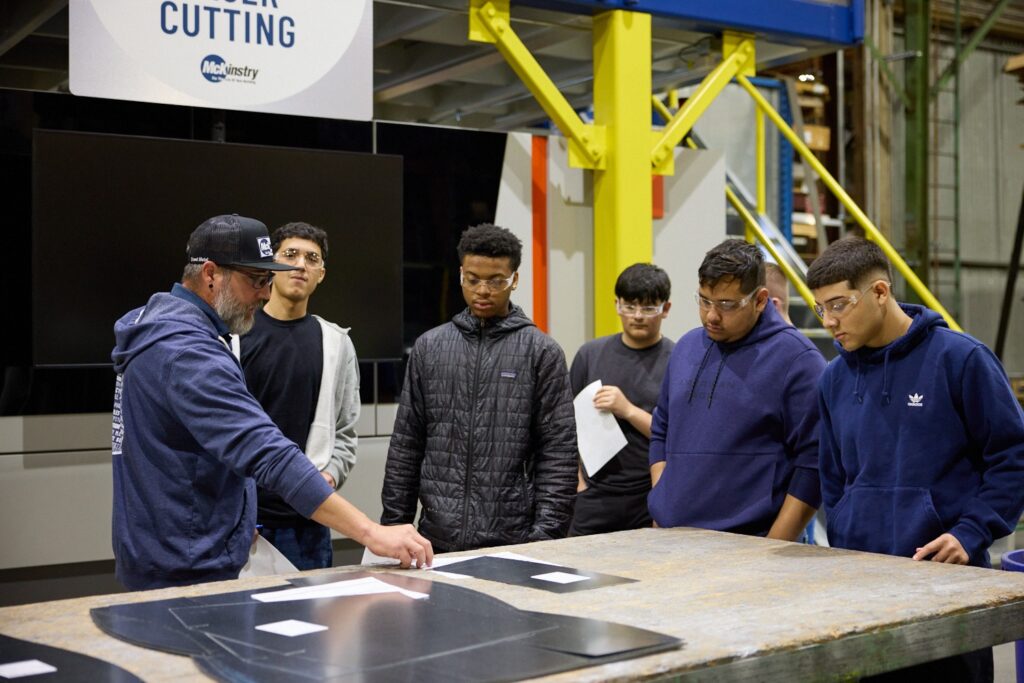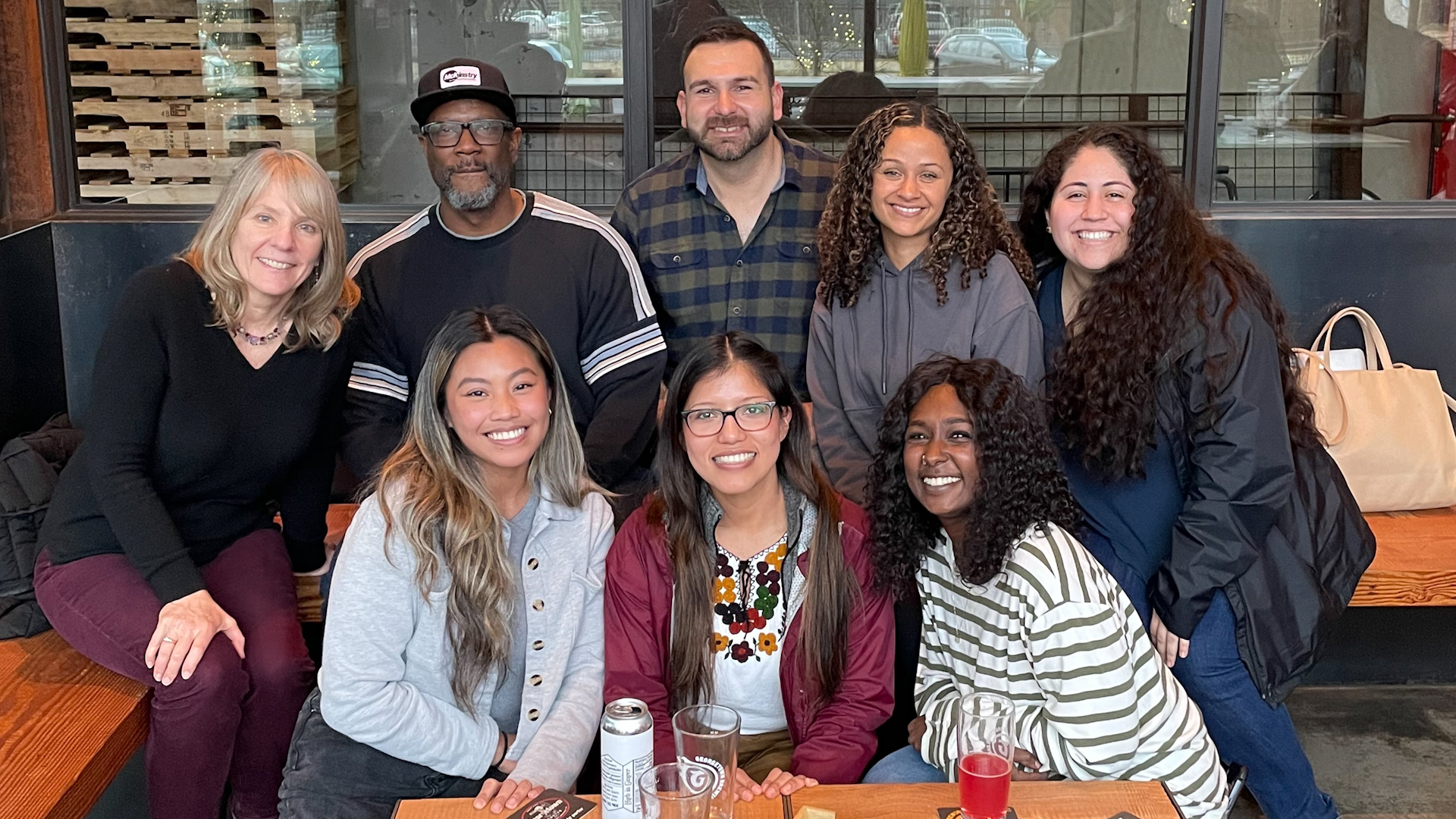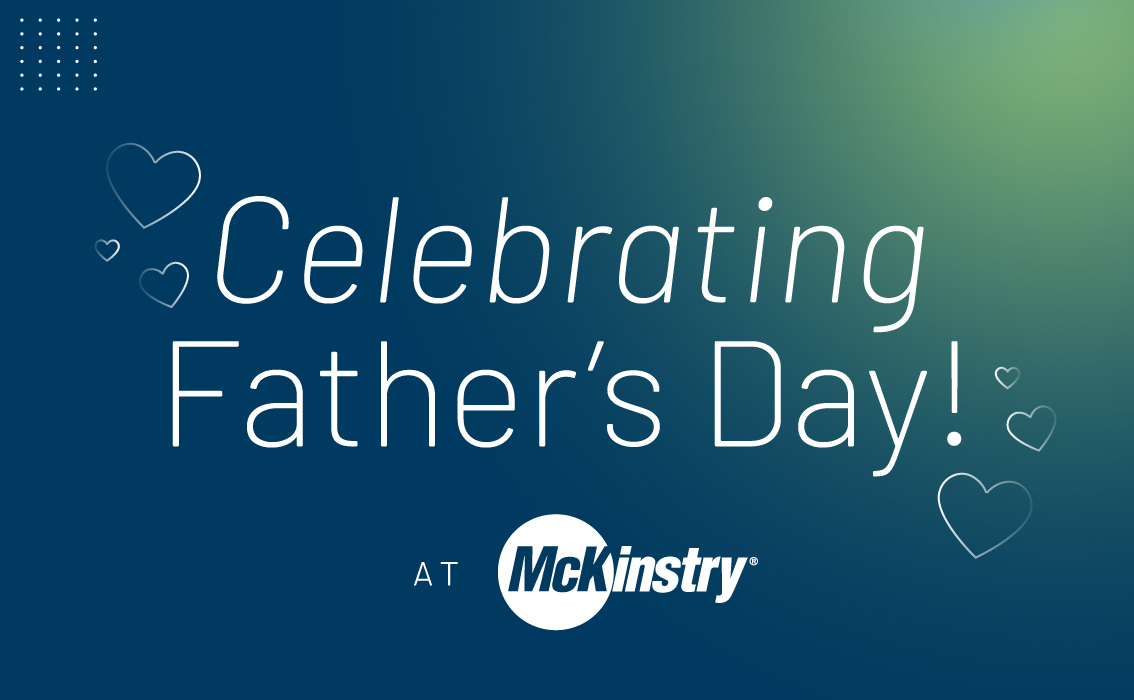McKinstry’s Eric Longo on Positively Impacting Future Generations

“Highlights for me were being able to give back to the younger generations. Having an impact on young lives serves as a powerful motivation in the work I do.”
Eric is the Seattle manufacturing facility manager and has been with McKinstry since 2018. In addition to enhancing the efficiency and productivity of the shop, Eric dedicates time to McKinstry programs that introduce high school students to career opportunities in the trades. He was recognized as a 2023 Impact Award recipient in part for his impactful work with surrounding communities and high schools.
Learn more about Eric’s career path and the incredible impact he is making on McKinstry and beyond.
Learn More About Eric’s Experience
I am the Seattle manufacturing facility manager. I initially joined McKinstry in 2018, taking on a dual role as on-site safety and project engineering for Department 200 Construction. After almost two years in that role, I decided to continue on the project engineering and project management track within the department.
I gradually worked my way up, gaining experience on various projects and ultimately achieving the position of project manager. However, an opportunity arose, and I interviewed for the shop manager position. What appealed to me about this role was its similarity to job site management – the same structure with different crews, trades and leads.
The unique aspect that drew me in was the customer focus, where our customers are our internal teams, project groups and different departments within McKinstry. Essentially, we are here to support and take care of our internal colleagues. This appealed to me as I find joy in building relationships within our organization and affecting positive change. While I appreciate client-facing roles, the opportunity to directly impact and support our internal McKinstry teams is particularly fulfilling for me.
My interest in the field started with my experience in the infantry for 20 years. Being in that role made me realize what I didn’t want to do when I transitioned out. As I explored different companies and industries, what stood out to me were the values they held and how true they remained to those values. That authenticity resonated with me, and I’ve witnessed it at McKinstry every day since. The appeal grew as I delved into various aspects, from the construction site to the intricacies of tooling. The constant learning curve fascinated me – it’s a nonstop process. The industry’s rapid growth in technology and processes means you can’t know everything, and I enjoy the challenge of continuous learning and seeking innovation. That’s what keeps me engaged and passionate about what I do.
In my role, success is defined by efficiency. I strive for high productivity and keeping costs low on the shop side. Reducing downtime and optimizing equipment usage are key focuses to achieve this efficiency.
Another aspect of success involves building bridges and cultivating relationships with both internal departments and external clients. Establishing strong connections is crucial for collaboration and overall success in my role. Working with McKinstry’s Social Impact team initially seemed overwhelming, especially the McKinstry Heavy Metal Summer Experience, which was a six-week program that introduced high school students to union career opportunities in the skilled trades. However, it was incredibly rewarding to have a positive influence on these students and contribute to their experience. Seeing their interest and enthusiasm during their time in the shop is particularly fulfilling.
The Heavy Metal Summer Program presented its own set of challenges, but the satisfaction came from successfully navigating and coordinating the program. Being able to plan and foresee the logistics, such as when the kids would be in, their activities and show schedules, contributed to the overall success of the program.
The most rewarding aspect of my work is collaborating with others, especially the youth within McKinstry. Our main objective is to actively contribute to various projects across the organization. We are committed to not just fulfilling the requirements but going above and beyond in our efforts. This involves supporting the shop leads in every aspect, from maintenance tasks to showcasing our projects. Our engagement extends to interfacing with business unit leaders across different departments, ensuring a comprehensive and integrated approach to our work.
I hope to raise awareness about the trades. I want to provide young individuals with alternative options for continuing their education after high school, emphasizing that there are viable paths beyond the traditional ones. Building strong relationships with parents, school districts and industry partners, I aim to foster a supportive environment for those considering vocational routes.
In my current role, I envision leaving a positive imprint on the shop. I aim to enhance efficiency and productivity, implementing innovative strategies to keep pace with an ever-changing industry. It’s similar to navigating a battlefield, always anticipating and adapting to change. Much like military training, staying ahead in the construction and industrial sectors requires embracing cutting-edge technology and innovation to avoid falling behind. Ultimately, I want to contribute to the continuous growth of the shop, ensuring it remains competitive and resilient in the face of industry advancements.
Highlights for me were being able to give back to the younger generations. Having an impact on young lives serves as a powerful motivation in the work I do.

Explore Other Insights

McKinstry’s Pride Alliance
McKinstry Alliances are our version of employee resource groups or affinity groups. Alliances are voluntary, employee…

McKinstry Alliance Leader Reflects on Juneteenth Legacy
On June 19, 1865, months after the Civil War ended and more than two years after President Lincoln signed the Emancip…

Celebrating Father’s Day
Father’s Day serves as an opportunity to recognize and celebrate those shaping lives and communities through fatherho…